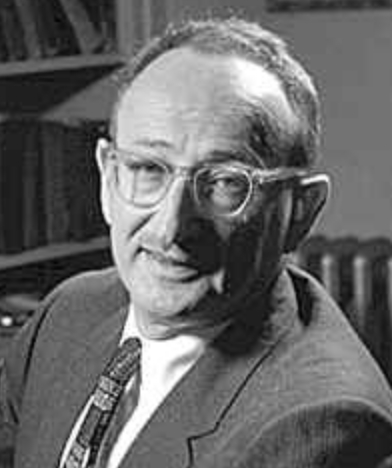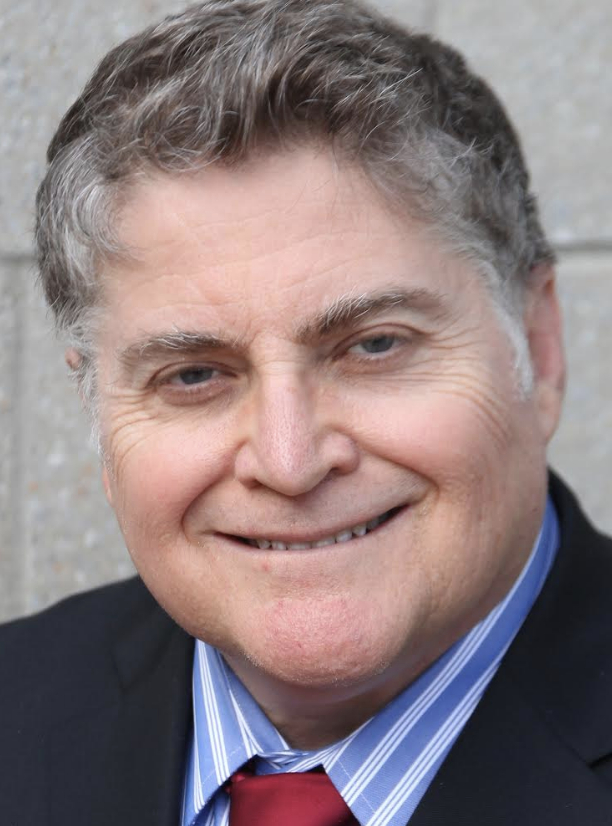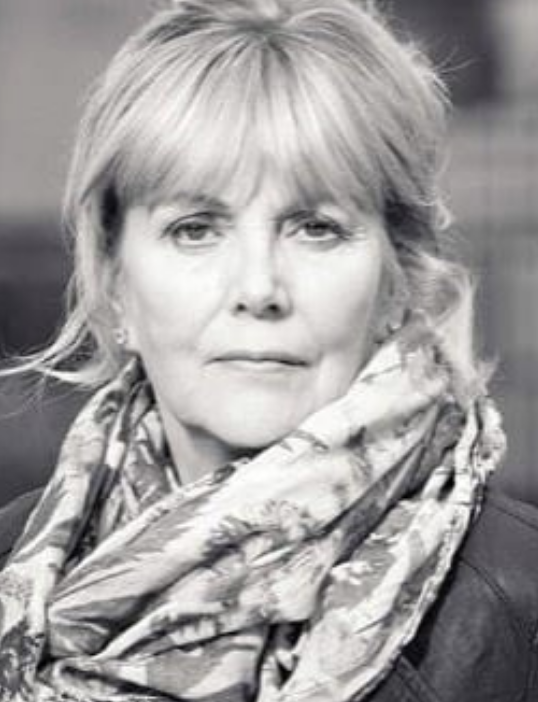December 20
Sidney Hook

On this date in 1902, philosopher Sidney Hook was born in Brooklyn, N.Y., to Jennie and Isaac Hook, Austrian Jewish immigrants. He became a supporter of the Socialist Party during the Eugene Debs era when he was in high school. He graduated from the City College of New York with a bachelor’s degree in 1923 and earned a Ph.D. from Columbia University in 1927, where he studied under John Dewey.
Hook became a professor of philosophy at New York University (1927-69) and served as department head from 1948-69. He ended his academic career as a senior research fellow at the consevative Hoover Institution at Stanford University (1973-89). He embraced Marxism but later became a staunch anti-communist.
His books include The Metaphysics of Pragmatism (1927), Toward the Understanding of Karl Marx (1933), Marx and the Marxists: The Ambiguous Legacy (1955), Common Sense and the Fifth Amendment (1957), The Quest for Being, and Other Studies in Naturalism and Humanism (1961), The Place of Religion in a Free Society (1968), Pragmatism and the Tragic Sense of Life (1974), Marxism and Beyond (1983) and his autobigraphy Out of Step: An Unquiet Life in the 20th Century (1987). He was awarded the Presidential Medal of Freedom in 1985.
He married Carrie Katz in 1924, with whom he had one son. He married Ann Zinkin in 1935 and they had a son and a daughter.
Letters of Sidney Hook: Democracy, Communism, and the Cold War (1995, ed. Edward S. Shapiro) details how it was irrational to believe in the existence of a merciful and powerful God in the face of widespread human misery. Only his parents’ entreaties that he not embarrass them in front of friends and family convinced him to participate in a bar mitzvah at age 13. He had already declared his agnosticism.
People frequently asked him in his later years what he would say if he discovered after death that God really existed. He answered that he would simply state, “God, you never gave me enough evidence.” He died at age 86 in Stanford, Calif. (D. 1989)
“As a set of cognitive beliefs, religious doctrines constitute a speculative hypothesis of an extremely low order of probability.”
— Hook, The Partisan Review (March 1950)
Edward Tabash

On this date in 1950, attorney Edward “Eddie” Tabash, advocate for state-church separation and an atheist, was born in Los Angeles. His father was a rabbi from Lithuania and his mother was an Auschwitz survivor from Hungary. He remembers adults telling him at age 7 at a Passover seder how the god of the Old Testament rescued Jewish slaves from Egypt, prompting him to ask why that same god allowed the Holocaust. The adults responded with an embarrassed silence.
As a young adult he sought spiritual comfort from New Age meditation and similar techniques. He graduated magna cum laude from UCLA in 1973 and in 1976 from Loyola Law School in Los Angeles, where he specializes in constitutional law and criminal defense.
For two decades, Tabesh was the primary speaker and debater for the California Abortion and Reproductive Rights Action League. He represents the atheist viewpoint in formal debates with Christian apologists and is a longtime FFRF supporter and Life Member. As of this writing in 2021, he is board chair of the Center for Inquiry.
Asked in a debate where morality comes from, he answered: “It develops from compassion, from mercy, and from understanding the plight of the human condition. … [T]he superiority of the atheist-derived compassion is evidenced by the fact that we don’t talk about how justified it is for people to go to hell forever just because they made the wrong theological choice. That, to me, is the most damning, immoral obscenity articulated by Christians.” (Debate at UC-Davis, Dec. 1, 1993)
Tabash seeks equality for nonbelievers and believers but has expressed concern about how fundamentalist beliefs of all kinds have been used throughout history to deny women equality: “No person should lose her or his freedom because of someone else’s religious beliefs.” He said the same is true about LGBTQ+ discrimination: “There is not one proposed piece of legislation that would deny gays and lesbians equal rights that is not grounded in religious dogma.” (“Point of Inquiry” podcast, May 4, 2006)
He lives in Pacific Palisades, a coastal Los Angeles community.
“I submit that the Christian God is an unproven myth.”
— Tabash during “Does God Exist?” debate with Christian apologist Greg Bahnsen at UC-Davis (Dec. 1, 1993)
Kate Atkinson

On this date in 1951, award-winning author Kate Atkinson was born in York, England. As of this writing in 2025, she had published 15 novels and short-story collections — several adapted for BBC-TV series — with over 4 million copies sold worldwide. She was elected a Fellow of the Royal Society of Literature in 2010.
Born out of wedlock, she had an unsettled childhood fraught with anxiety while growing up without siblings above her parents’ medical supplies shop. “There was a lot of suppressed emotion,” she would later say, and was left largely to her own devices.
After earning an M.A. in English literature at the University of Dundee in Scotland, she worked toward a doctorate in American literature but did not complete it. Twice married with two daughters, she met both husbands at the university.
“If I had my time over again I would have five children at a young age when I had the energy, before I could even think about it,” Atkinson said later. “Being a mother is the most satisfying thing you can be. You know without a second thought or backward glance you would lay down your life for your child, and for me that is an extraordinary, amazing thing. You wouldn’t do it for anything else, but you would do it for your child.” (The Guardian, March 12, 2000)
She worked at a variety of jobs while writing short stories, breaking through in 1995 at age 43 with publication of her first novel “Behind the Scenes at the Museum.” It surprisingly won the prestigious Whitbread “Book of the Year” award over literary luminaries such as Salman Rushdie and inspired the headline “Unknown Chambermaid Wins Prize” (she once worked in a hotel).
While “Life After Life” (2013) was highly acclaimed by readers and critics, she considers its 2015 sequel “A God in Ruins” as her best work. “That’s the book I always wanted to write,” she said in 2019. Her oeuvre includes six books in the Jackson Brodie series about a private investigator, “an ultimate survivor and bruised optimist compelled to help others.” Five have been adapted for the BBC series “Case Histories,” also the name of the first Brodie novel in 2004.
While some of her characters have plenty to say about their religious beliefs or lack thereof, readers shouldn’t draw conclusions about Atkinson’s beliefs because of something a fictional character says: “I live to entertain, I don’t live to teach or to preach or to be political. If I have a job to do it is to entertain myself first and then everyone else afterwards.” (The Guardian, June 15, 2019) She says she writes fiction, not autobiography.
Ursula Todd, the central character in “Life After Life,” delves deeply into Buddhism and reincarnation. Atkinson: “I think about death a lot, I really do, because I can’t believe I won’t exist. It’s the ego isn’t it? I feel that I should retreat into a better form of Zen Buddhism than this kind of ego-dominated thing. But I don’t know, I mean, I want to come back as a tree but I suspect that it’s just not going to happen, is it?” (NPR, March 28, 2013)
“I’m a lapsed Quaker. I don’t go to meetings any more. But I’m very drawn to Catholicism — all that glitter. I’d love to be a Catholic. I think it would be fantastic — faith, forgiveness, absolution, extreme unction — all these wonderful words. … I find faith fascinating because there is no intellectual content to it. It must be a wonderful thing to say you believe in something. I would love that. To do away with doubt and fear.”
— Atkinson answering an interviewer who asked if she believed in God. (The Guardian, March 12, 2000)
